Swiss women celebrate 40 years of suffrage
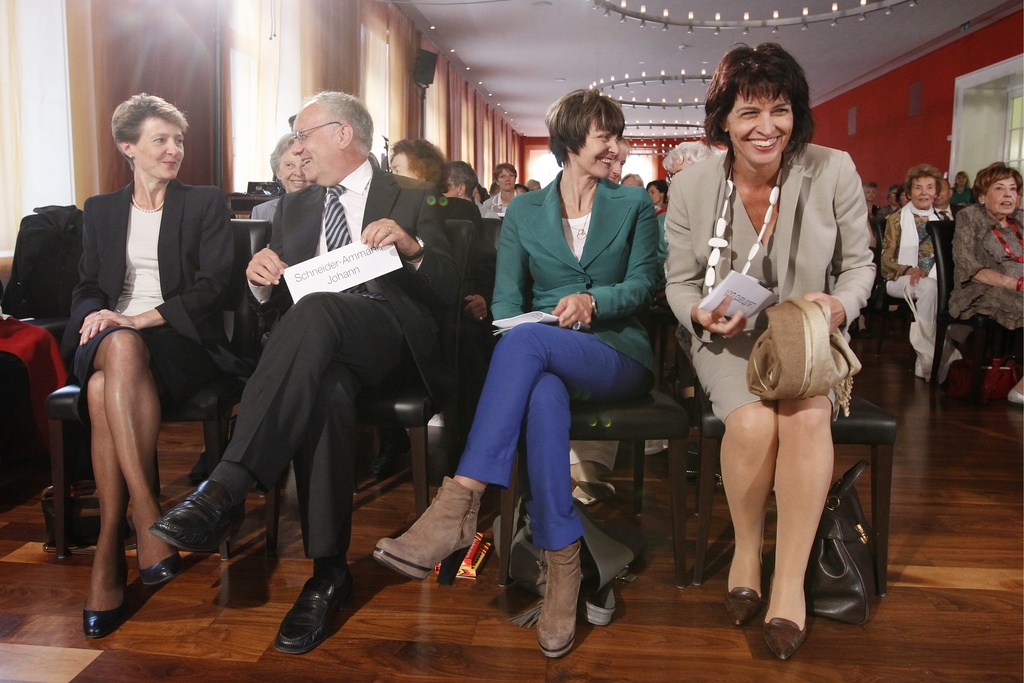
Swiss women have come a long way since 1971, the year they were granted the right to vote at the federal level.
Exactly 40 years after their first chance to do so, around 125 representatives of the Swiss political, social and economic scenes celebrated the milestone in Bern on Monday.
On February 7, 1971, 66 per cent of Swiss men voted in favour of allowing women to vote as well. The first opportunity came on June 6 of that year – when nationwide issues included environmental protection and financial regulations.
Many women who remember that momentous year were at the Bernerhof on Monday to reminisce and discuss what still needs to be done.
“This is a very important event because we still have a number of problems and challenges in terms of equality. Some examples include equal pay for equal work and the glass ceiling,” said former parliamentarian Rosmarie Zapfl-Helbling, president of alliance F, an umbrella organisation for 140 women’s groups in Switzerland.
“We know how difficult it is for women to advance to higher management positions in business and science,” she told swissinfo.ch.
“This awareness is important, especially for young women who have no idea that this wasn’t even possible 40 years ago – and in Appenzell, just 20 years ago. It’s really a very short time. And despite that, we’ve really come a long way with four ministers in the cabinet. That’s certainly very special this year.”
More women needed
In her ceremonial speech, Foreign Minister Micheline Calmy-Rey, who this year holds the rotating Swiss presidency, said: “The women’s right to vote was the cornerstone of a concrete gender equality policy in Switzerland. A lot of what the pioneers had to fight hard for has become natural for young women.”
But she pointed out that true equality had yet to be reached, noting that women were underrepresented in politics and business.
“There need to be more women present where important decisions are made,” she said.
Calmy-Rey was joined by fellow cabinet members Doris Leuthard, Eveline Widmer-Schlumpf, Simonetta Sommaruga and Johann Schneider-Ammann, as well as Federal Chancellor Corina Casanova. The other two cabinet members, Ueli Maurer and Didier Burkhalter, were not present.
Economics Minister Schneider-Ammann also spoke in favour of bringing more women to the fore.
“Women and men are exactly equal. I would like to see more women in politics and business,” he said, encouraging young women to pursue business apprenticeships rather than taking the academic track. “This would definitely be in the interest of the economy.”
Casanova lamented the fact that the number of women active in politics had stagnated and even declined in some areas.
Meanwhile, Environment Minister Doris Leuthard confessed that she was quite cross regarding reactions to the cabinet’s recent decision to wean Switzerland off nuclear power. Some political pundits described it as an “emotional” decision – implying that only women could come up with such an idea.
Equal pay for equal work
Elisabeth Kopp, Switzerland’s very first female cabinet member, was also present at Monday’s celebration. She was a minister from 1984-1989, but remembers the not-so-good old days quite well.
“When I talk with young people and my grandchildren, they are so amazed when they hear that I could not open a bank account in my own name as mayor of the city where we live. They look at me and say this cannot be true, but unfortunately, it was,” Kopp told swissinfo.ch.
While she described the election of the female cabinet majority in September 2010 as a great moment in Swiss history, she also noted that it was more of a symbolic one. Like so many of her colleagues, Kopp feels there is a lot of work to be done on the gender equality front. As a priority she cited equal pay for equal work.
“There are quite a lot of couples who both would like to work half-time to have more time for the family. And sometimes this is just not possible because the women do not earn as much as the men. For the children – and the whole family – this would be a big advantage. I think this is really one of the biggest issues we have now,” she said.
Asked what people could expect in 40 years from now, Kopp called on men to get with the programme.
“I hope that men will be more emancipated by then and support the equality of women at their side – not only in politics but also in the whole society and in the family – and realise what an advantage this means. It’s a challenge of course, being married to a woman who has equal rights and a good education and so on, but it’s much more interesting.”
The fight for women’s suffrage in Switzerland goes back to the end of the 19th century.
The Swiss Female Workers’ Association called for votes for women in 1893.
In 1904 the Social Democratic Party of Switzerland included women’s suffrage in its manifesto.
In 1912 and 1919 a number of cantons rejected moves to give women the vote at cantonal level.
A petition calling for women to get the vote at federal level collected nearly 250,000 signatures, but was ignored.
The first breakthrough came in 1957, when canton Basel City voted to allow communes to give women the vote at commune level. Riehen was the first to do so, in 1958.
In a federal vote in 1959, women’s suffrage was rejected by 67%.
Vaud gave women the right to vote at cantonal and commune level in February 1959, followed by Neuchatel in September and Geneva the next year.
Basel City was the first German-speaking canton to follow suit in 1966; Basel Country did the same in 1968, and Italian-speaking Ticino in 1969.
Women were finally granted the right to vote at federal level on February 7, 1971.
In October 1971 the first 11 women were elected to parliament.
Women still did not have the vote at the local level in all cantons and communes. The last to hold out was canton Appenzell Inner-Rhodes.
Women got the vote there in 1990, after a Federal Court decision.
A recent study shows that the number of women aged between 18 and 29 who exercise their voting rights has dropped from 38 to 26 per cent since 1971.

In compliance with the JTI standards
More: SWI swissinfo.ch certified by the Journalism Trust Initiative


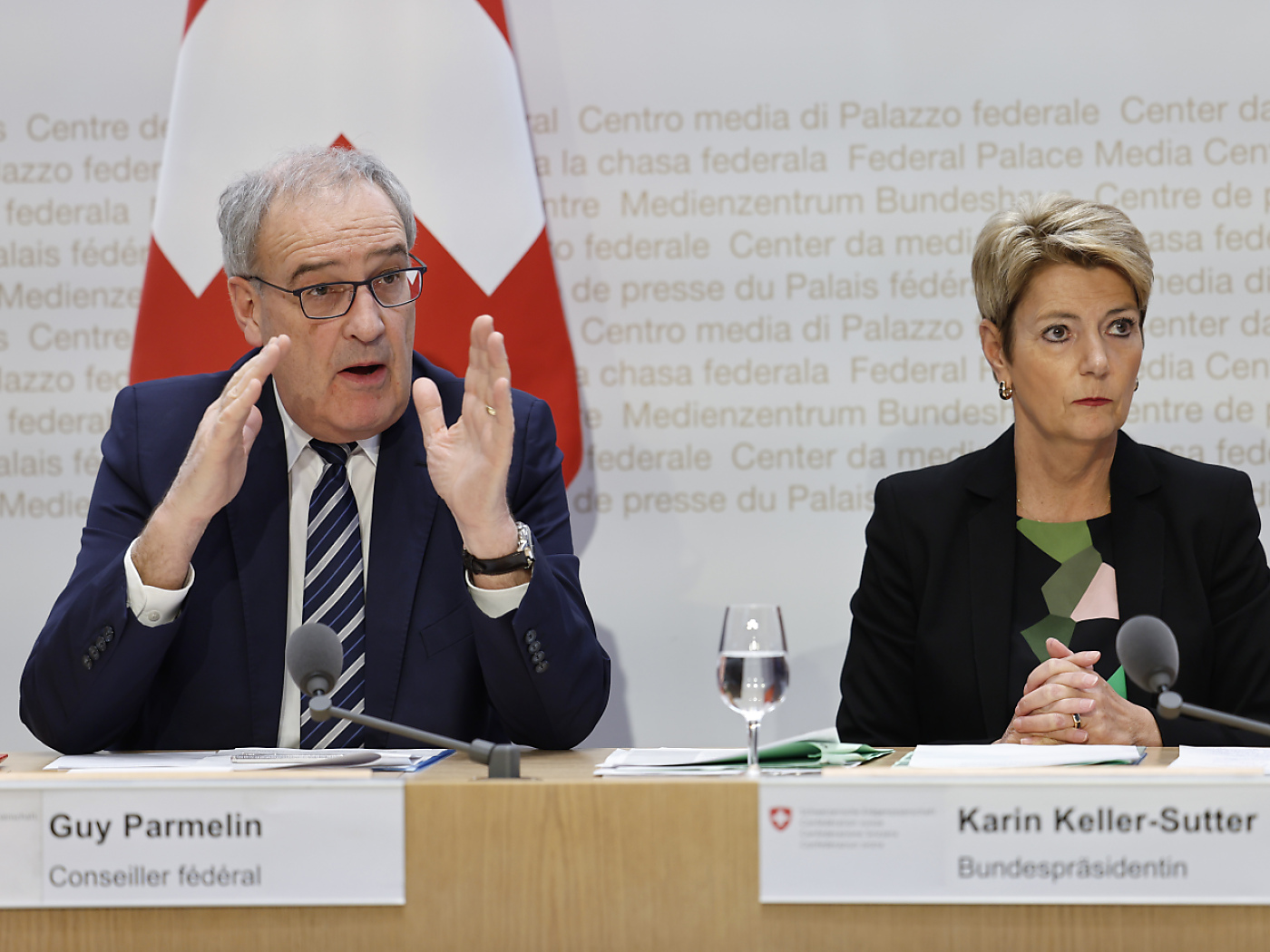






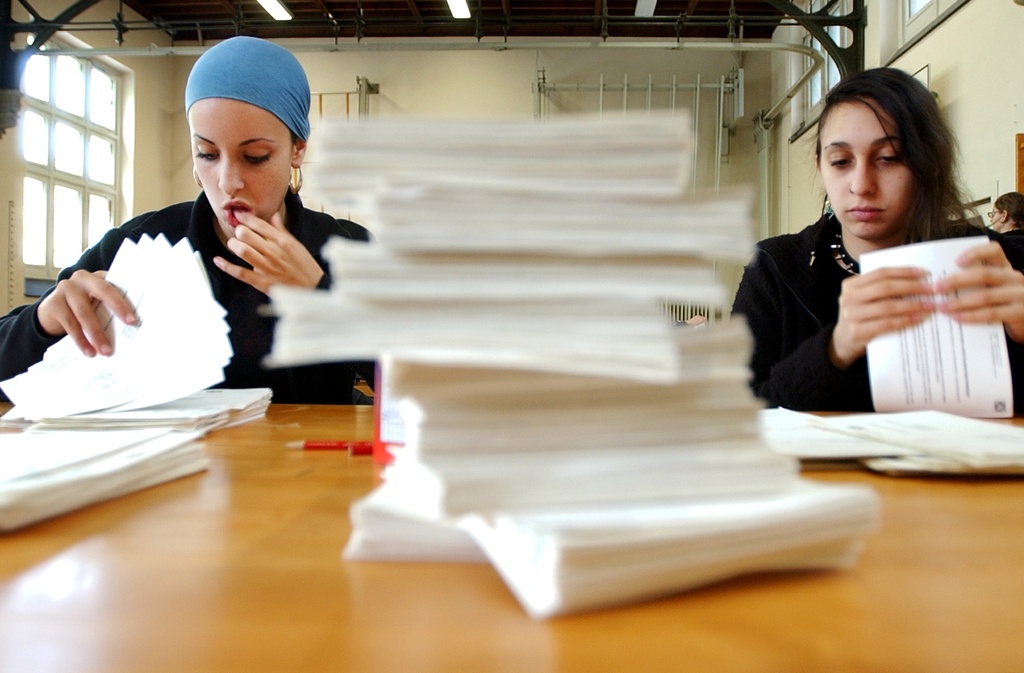
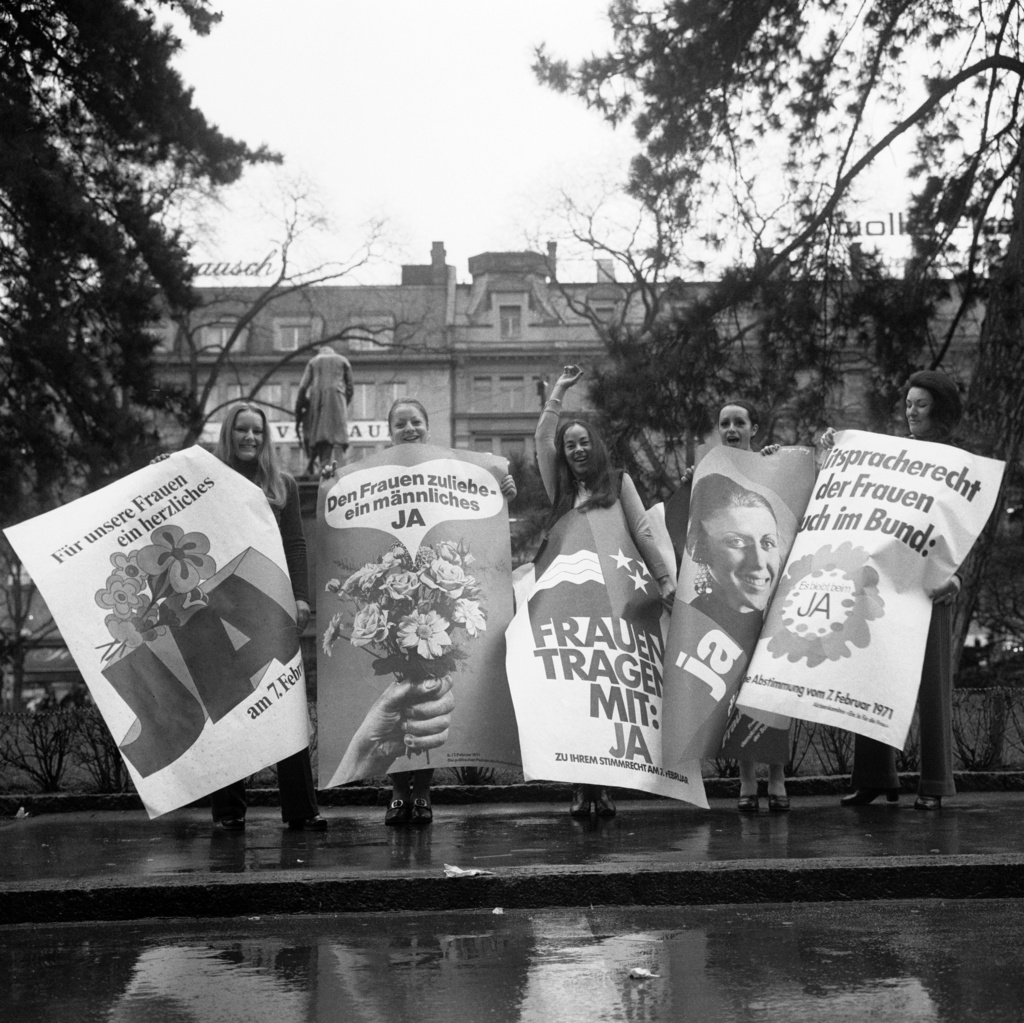


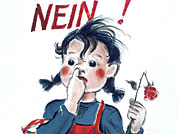
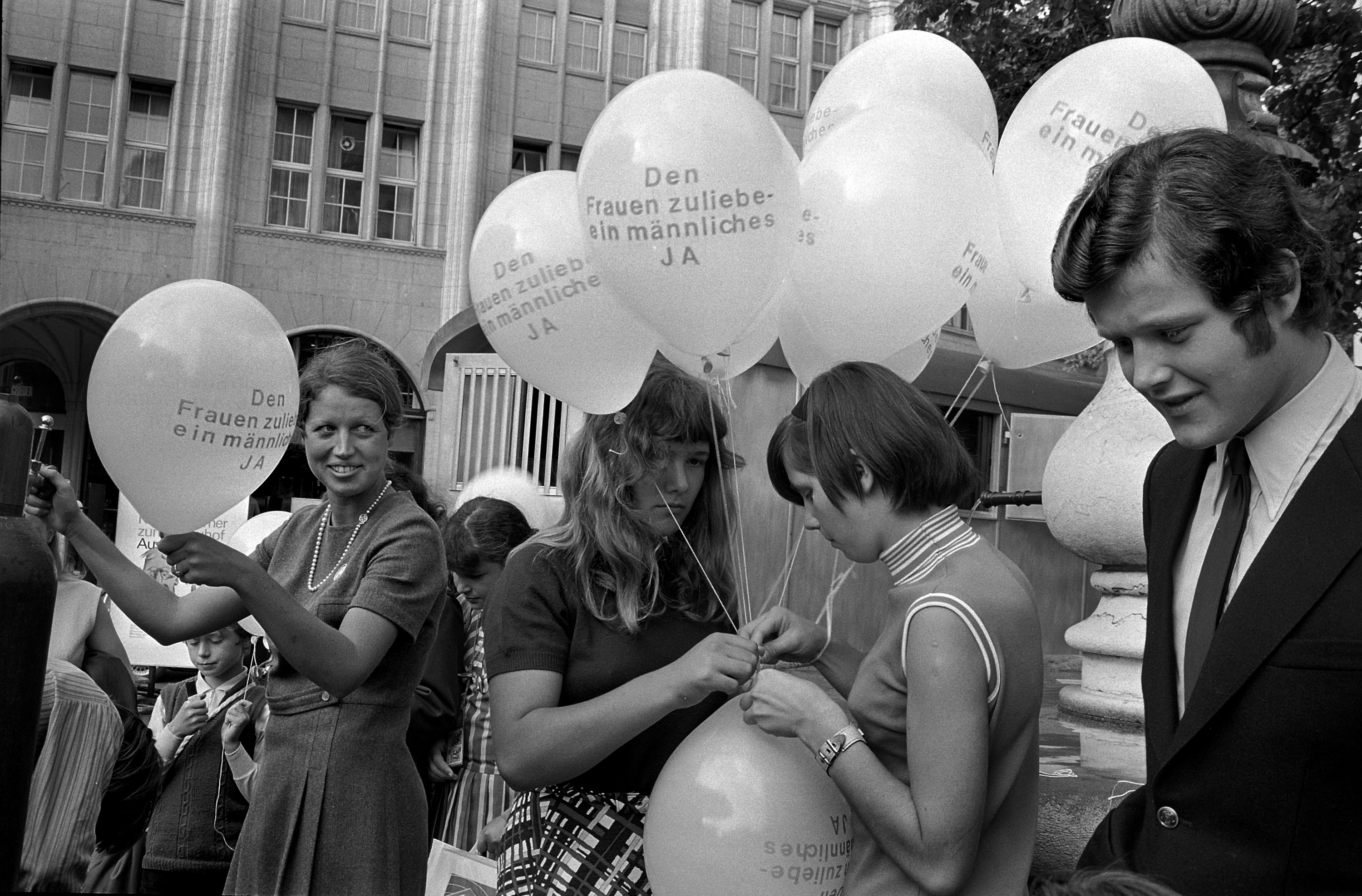

You can find an overview of ongoing debates with our journalists here . Please join us!
If you want to start a conversation about a topic raised in this article or want to report factual errors, email us at english@swissinfo.ch.